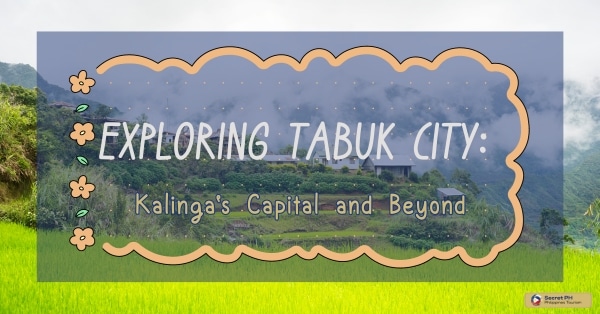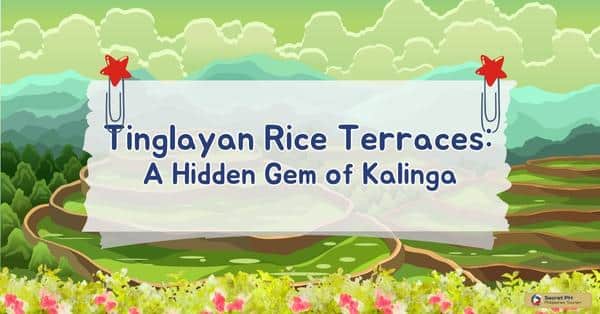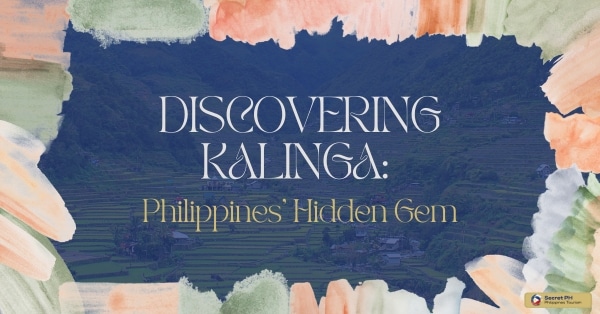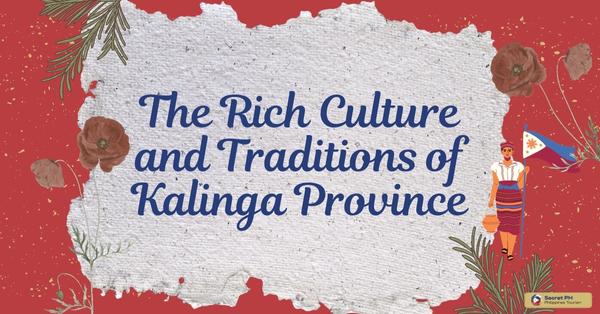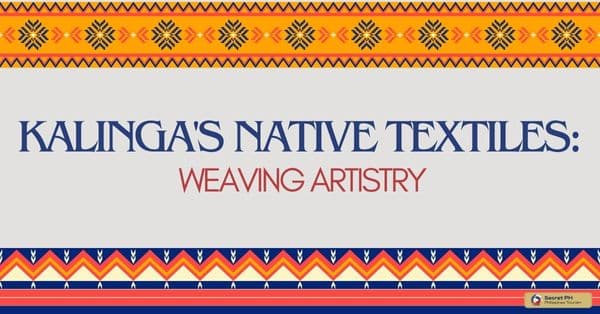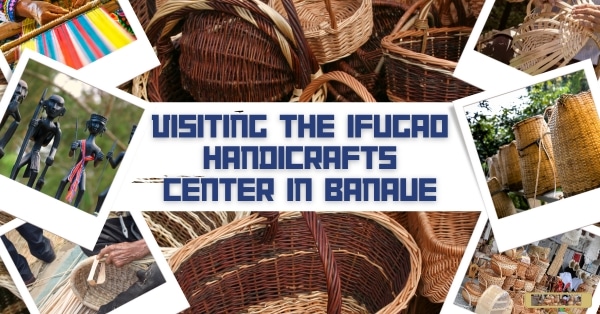The Ifugao people, a community known for their rich heritage, have perfected the art of craftsmanship over generations. Their intricate creations, ranging from stunning wood carvings to elaborate textiles, reflect their deep connection to culture and tradition. By preserving this craftsmanship, the Ifugao people not only sustain their cultural identity but also showcase their remarkable artistic skills to the world.
In this post, we’ll take a closer look at the unique art form of Ifugao craftsmanship and how it has made an impact on the lives of these people. We’ll also explore the ingenuity, creativity, attention to detail, and use of natural materials that go into each piece they create. So join us as we admire the beautiful craftsmanship of the Ifugao people!
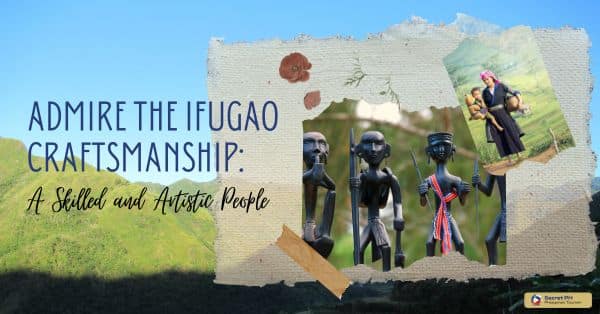
The Ifugao People
The Ifugao people are an indigenous ethnic group native to the Cordillera mountain range in northern Luzon, Philippines. The highly rural population of over 140,000 is mainly concentrated in Banaue and its surrounding areas, where they maintain their traditional way of life and culture.
Ifugao culture dates back centuries, with a spiritual belief system centered around agricultural cycles and the animism of their ancestors. Their culture is expressed through an oral tradition that includes stories, songs, and chants, as well as traditional rituals. The Ifugao are also renowned for their craftsmanship in basket weaving, wood carving, pottery making, tattooing, and other forms of art.
The Ifugao people have a strong connection to the land they live on, relying heavily on its natural resources for sustenance. They are known for their agriculture, growing mostly rice and other crops in terraced fields carved out of the mountainside. The Ifugao people are also skilled hunters and gatherers, adept at finding edible plants and animals in the dense Cordillera forests.

Ifugao Craftsmanship
The Ifugao people have mastered an array of artisanal crafts that reflect their deep connection to their culture and surroundings. Their craftsmanship extends across various aspects of their lives, showcasing a blend of artistic flair and practical ingenuity.
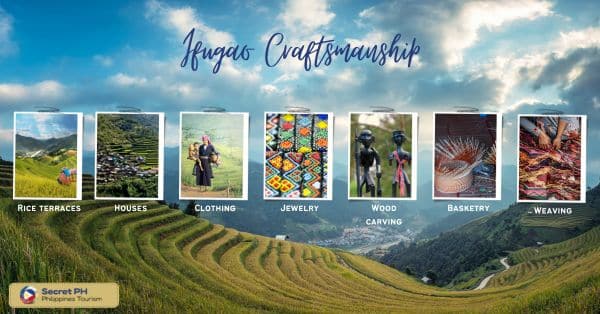
Rice terraces
Perhaps the most iconic of their creations, the Ifugao’s terraced rice fields are a testament to their engineering prowess. Carved into steep mountainsides, these terraces feature precisely engineered irrigation systems that demonstrate their understanding of water management. These intricate landscapes not only sustain their agricultural needs but also exemplify their harmonious coexistence with nature.
Houses
The Ifugao’s architectural ingenuity is evident in their traditional houses. Characterized by their thatched roofs and distinctive design, these houses are not only functional shelters but also embodiments of cultural identity. Crafted from locally sourced materials, the houses are built to withstand the elements while reflecting the Ifugao’s artistic sensibilities.
Clothing
The Ifugao people’s clothing is a canvas for their intricate weaving skills. Traditional garments are adorned with patterns that convey stories, symbols, and beliefs, creating a living tapestry of their history. The art of weaving is passed down through generations. Connecting the past with the present and ensuring the preservation of their heritage.
Jewelry
Ifugao jewelry is a showcase of their metalwork and bead-making talents. Handcrafted using materials like brass, copper, and shell. These ornaments carry cultural significance and are often worn during special occasions and ceremonies. Each piece tells a story, contributing to the rich narrative of Ifugao culture.
Woodcarving
Woodcarving is another cornerstone of Ifugao craftsmanship. Elaborate carvings on houses, furniture, and other objects depict scenes from their myths and traditions. The intricate detailing showcases their mastery over the medium, turning ordinary objects into works of art imbued with cultural meaning.
Basketry
The Ifugao’s basketry is a blend of functionality and aesthetics. Baskets are crafted using different weaving techniques and serve various purposes, from carrying crops to storing goods. The craftsmanship that goes into these everyday items is a testament to the Ifugao’s dedication to both practicality and beauty.
Weaving
Weaving is a central pillar of Ifugao culture, where intricate patterns and designs are woven into textiles that carry the stories and traditions of their people. From blankets to loincloths, their woven creations are worn during ceremonies, symbolizing the interconnectedness of their heritage with daily life.
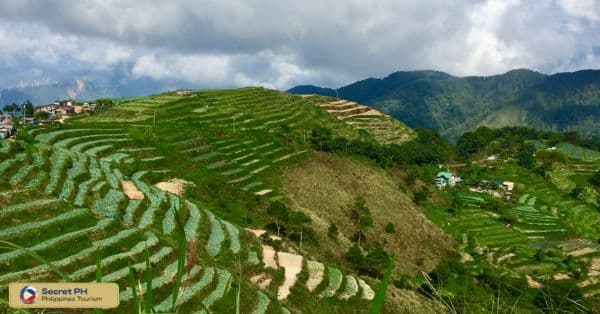
The Art of Ifugao Craftsmanship
The Ifugao people’s mastery of craftsmanship is a remarkable display of their artistic prowess and cultural heritage. Every creation they produce, whether functional or decorative, carries a rich narrative of their history, values, and way of life. Their artistry is marked by several key elements that set their work apart.
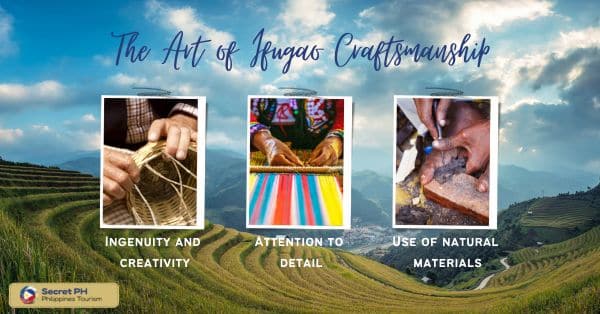
Ingenuity and creativity
Ifugao craftsmanship is a product of both tradition and innovation. The fusion of their ancient knowledge and contemporary creativity results in stunning artifacts that bridge the gap between the past and the present. Their ability to adapt traditional techniques to modern demands highlights the dynamic nature of their artistic expression.
Attention to detail
The Ifugao artisans’ commitment to detail is unparalleled. Whether crafting intricate patterns on textiles or carving elaborate motifs onto wood, their meticulous attention to even the tiniest element is evident. This meticulousness doesn’t merely enhance the aesthetic appeal but also preserves the authenticity of their cultural stories.
Use of natural materials
One of the most captivating aspects of Ifugao craftsmanship is their preference for natural materials. Drawing from their environment, they incorporate materials like bamboo, rattan, wood, and plant fibers. By using what their surroundings provide, they create objects that seamlessly blend with their ecosystem, reflecting a deep respect for nature and sustainable practices.
The Ifugao’s use of natural materials is not just practical but symbolic. Each material carries its own significance, often connecting to myths, rituals, or everyday life. Their reliance on nature underscores their harmonious relationship with the environment and their desire to keep their traditions rooted in the world around them.
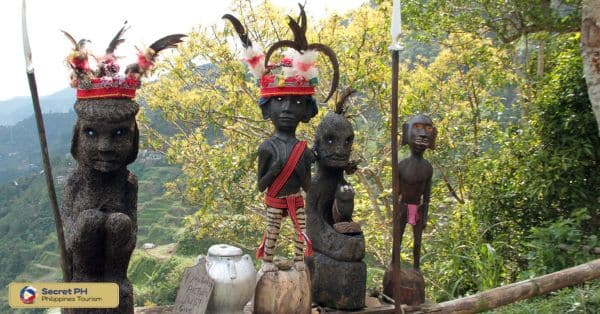
The Importance of Ifugao Craftsmanship
The craftsmanship of the Ifugao people holds immense significance beyond its aesthetic appeal. Rooted in their history, culture, and way of life, these artisanal practices play a pivotal role in shaping the Ifugao community and preserving their unique identity.
1. Cultural Preservation– Ifugao craftsmanship serves as a living repository of their cultural heritage. Through intricate carvings, weavings, and creations, the Ifugao people transmit stories, beliefs, and traditions from one generation to the next. This ensures the continuity of their cultural identity amidst changing times.
2. Connection to Ancestry– Many of the designs and motifs in Ifugao craftsmanship are tied to their ancestral narratives. Each piece crafted carries a piece of their history, allowing them to connect with their forebears and the wisdom they passed down.
3. Economic Livelihood– The craftsmanship of the Ifugao people provides economic opportunities within their community. Artisans who engage in woodcarving, weaving, pottery, and other crafts often find a source of income while preserving their traditional skills.
4. Tourism and Cultural Exchange– The beauty and uniqueness of Ifugao craftsmanship attract tourists and researchers alike. This exposure not only brings economic benefits but also fosters cultural exchange, allowing outsiders to appreciate and learn from their artistry.
5. Sense of Pride– For the Ifugao people, their craftsmanship is a source of pride. It showcases their resilience, creativity, and mastery of various artistic disciplines, bolstering their self-esteem and reinforcing their cultural distinctiveness.
In essence, the importance of Ifugao craftsmanship extends beyond the aesthetic realm. It’s a multi-faceted pillar that sustains their culture, identity, economy, and environment, intertwining the past, present, and future of the remarkable Ifugao people.
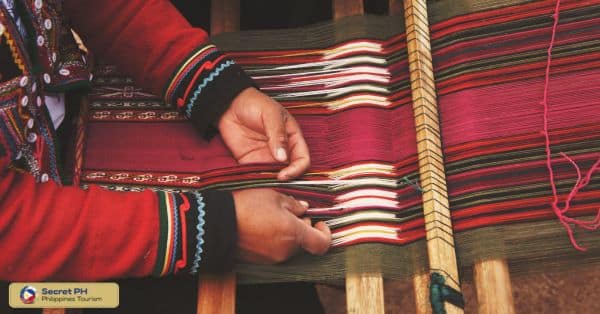
Supporting the Craftsmen and Women of Ifugao
In recent years, there has been a growing effort to support the skills and talents of the Ifugao people. Various organizations have been set up to help promote and preserve their craftsmanship, as well as give them the opportunity to sell their creations directly to buyers.
These initiatives are important in helping these people to sustain their traditional craftsmanship and livelihoods. It also provides much-needed exposure for this unique art form, so that more people can admire and appreciate it. If you would like to support the craftsmen and women of Ifugao, you can do so by checking out some of these initiatives or buying a piece of artwork directly from them!
The art of Ifugao craftsmanship is a beautiful and intricate one that deserves to be celebrated. Let’s continue to admire the skill and creativity of these people, as well as support their efforts in preserving this unique art form!
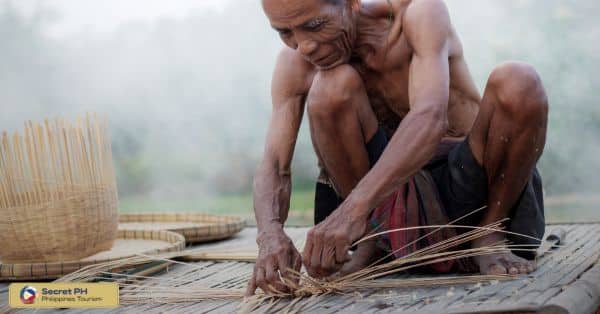
In conclusion
No matter how modern life gets, the traditional craftsmanship of the Ifugao people remains an incredible reminder of the creativity and skill behind this unique art form. From intricate rice terraces to houses, clothing, jewelry, and woodcarvings – the craftsmanship of the Ifugao people is a source of pride and admiration for many.
So let’s continue to appreciate their artistry and help support their efforts in sustaining their traditional livelihoods. Admiring the craftsmanship of the Ifugao people is a beautiful way to celebrate their incredible art form and preserve it for generations to come!


